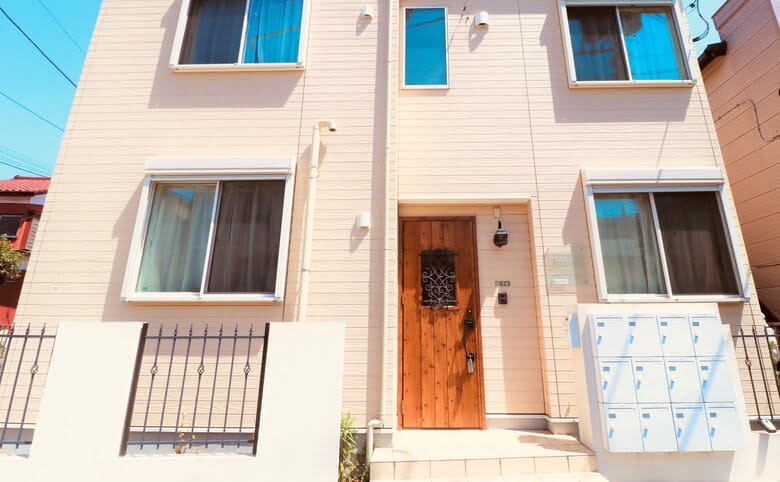
A Tokyo Beta share house in the capital’s Adachi ward (Image: Warburg Pincus)
Warburg Pincus on Wednesday announced its acquisition of a 16,192-room shared living portfolio, marking the fund manager’s maiden investment in Japan’s rental housing sector.
Spanning 1,195 assets, the Tokyo Beta portfolio dominates the Japanese capital’s “share house” market, a sector popular among students and young professionals renting individual rooms while sharing facilities and common spaces. The buy gives Warburg Pincus the country’s largest set of properties in the segment, according to the statement.
The acquisition on behalf of the Warburg Pincus Asia Real Estate Fund is the firm’s first investment in Japan since last year’s appointment of Takashi Murata as country head, with the New York-based firm acquiring the portfolio from compatriot investment manager Lone Star Funds, according to market sources who spoke with Mingtiandi. Financial details of the deal were not disclosed and Lone Star representatives had not yet replied to inquiries from Mingtiandi by the time of publication.
“We have built a strong conviction in Tokyo’s affordable rental housing market, which is underpinned by several secular tailwinds,” Murata said. “In the coming decade, the population in Tokyo is projected to continue to grow, driven by the influx of domestic and international young workforce and students, creating significant demand for affordable rental accommodation options.”
Half the Market
Having been acquired by Lone Star in 2022, the properties are operated by Tokyo Beta, which markets the affordable housing offering as a tech-enabled living option, promoting its proprietary smart phone app for residents, smart lock room access and mobility services such as electric scooters.

Takashi Murata, managing director, co-head of Asia real estate and head of Japan at Warburg Pincus
With hosting a growing cohort of foreign workers and young professionals, the company’s website boasts the tag line “Tokyo Beta supports people who move to Tokyo to pursue their dreams”. That web portal is available in English, Chinese, Korean, Vietnamese, Sinhalese, Nepalese and Burmese, in addition to Japanese. Before being acquired by Lone Star, the properties had been operated under the Kabocha no Basha (Pumpkin Carriage) brand.
The portfolio, which comprises more than half of Tokyo’s supply of share house accommodation, per Warburg Pincus, consists primarily of two-storey, wooden-structured detached houses, with most properties near public transport. Share houses cater to the growing demand for quality and affordable rental housing amid an influx of domestic and international young workers and students seeking better opportunities in Tokyo, Warburg Pincus said.
Warburg’s residential investments in the region include partnering with Vlinker on affordable rental housing in China and with SK D&D to focus on senior housing in South Korea. The private equity major also invests in the Weave Living apartment platform in Asia Pacific.
Murata said Tokyo’s limited housing supply has pushed residential rental rates up by 5 percent annually in the last three years, while occupancy rates are at a record high of more than 97 percent, underscoring the structural demand and supply gaps in the capital.
“By leveraging our deep platform-building experience and operational expertise in the rental housing space across Asia Pacific, we firmly believe there are significant opportunities to further unlock Tokyo Beta’s value through operational optimisation and institutionalising this residential sub-sector,” he said. “Tokyo Beta is poised to meet the increasing demand for reliable and affordable rental accommodation in the coming decade.”
Tosei to Manage
The share house assets will continue to operate under the Tokyo Beta brand, with Warburg Pincus entrusting Tosei Asset Advisors to manage them.
“We are pleased to partner with Warburg Pincus on its inaugural rental housing investment in Japan,” said Tosei Group CEO Seiichiro Yamaguchi. “Tosei Asset Advisors has built a strong track record of managing real estate funds with over JPY 2.4 trillion ($16 billion) in AUM across a diverse range of assets, serving both domestic and international investors.”
Warburg’s other Japan investments include a joint venture launched in 2023 with Tokyo-based asset manager Eastgate to invest in life sciences and R&D real estate. The JV has since acquired the Technowave 100 office and data centre facility in the R&D hub of Yokohama, with plans to convert the property for life sciences and R&D use.
Warburg Pincus and Australia’s Lendlease identified Japan as a target market for their 2024-vintage Asia Pacific life sciences joint venture, having seeded the portfolio with Leaf Minatomirai, a Yokohama mall turned R&D workplace.

Leave a Reply